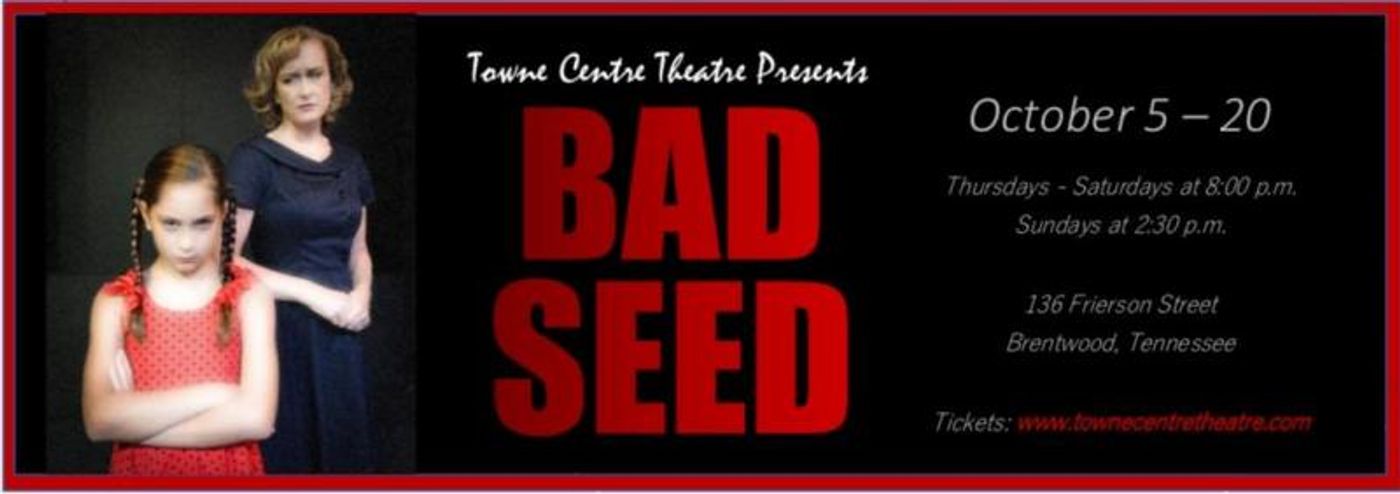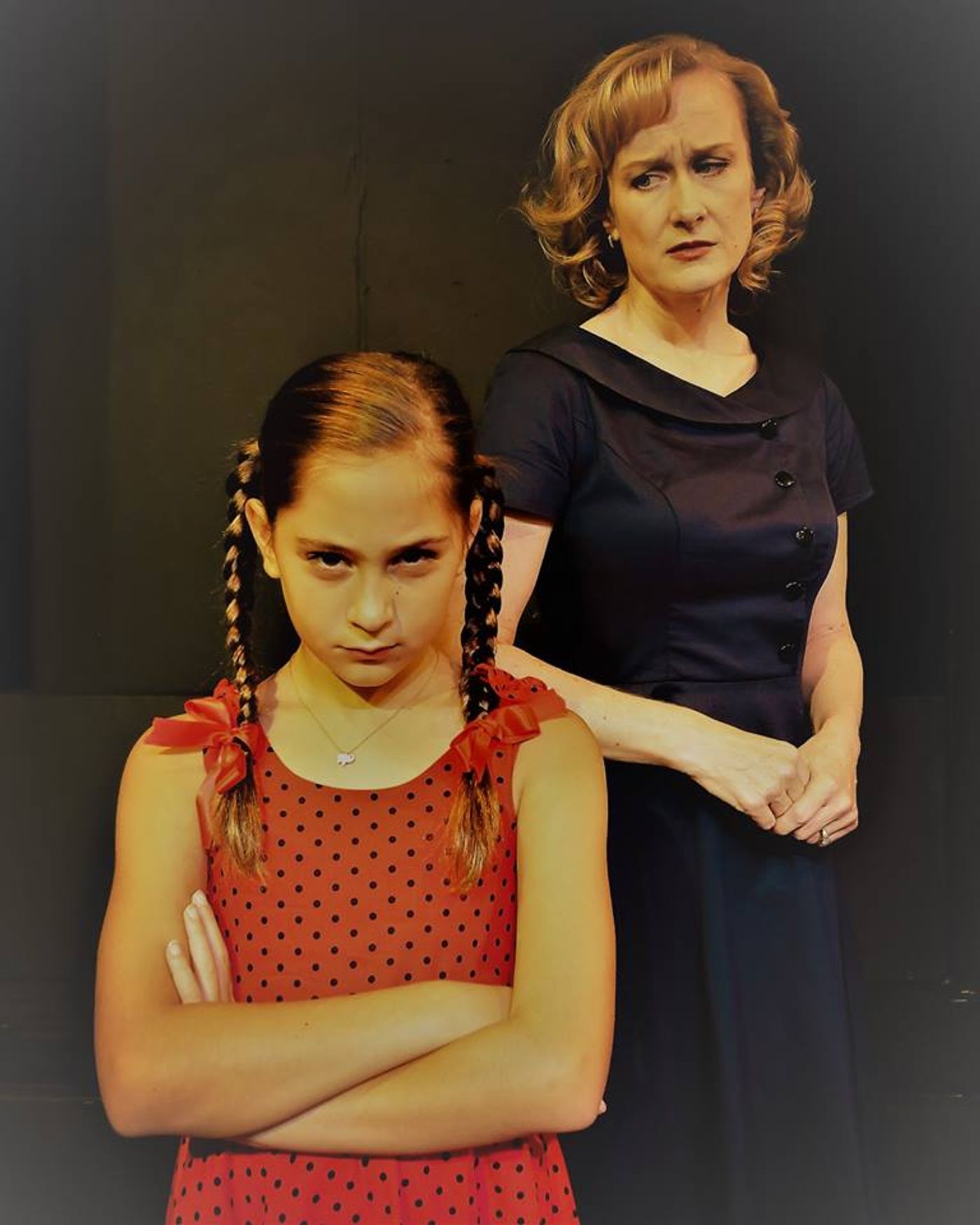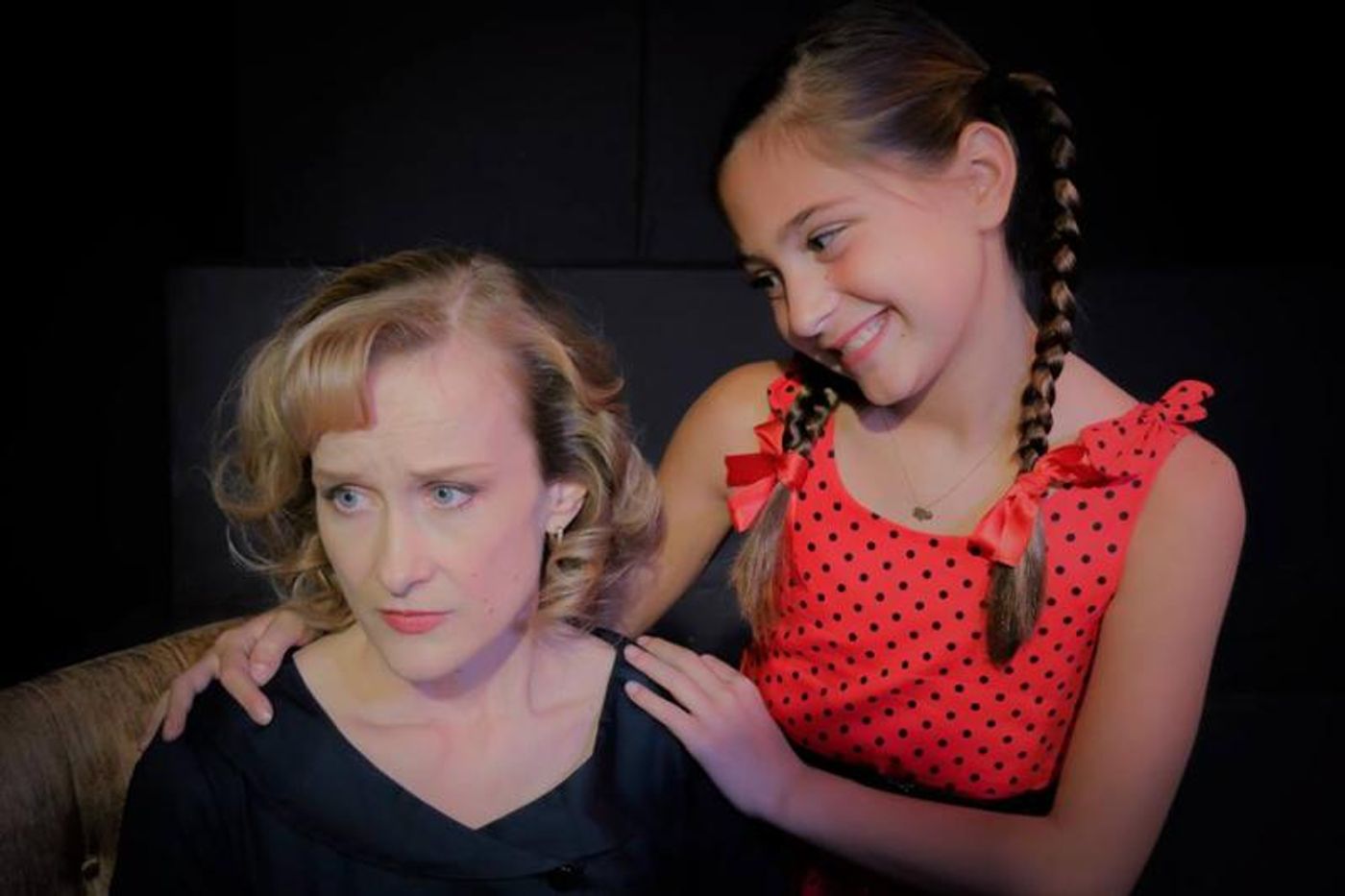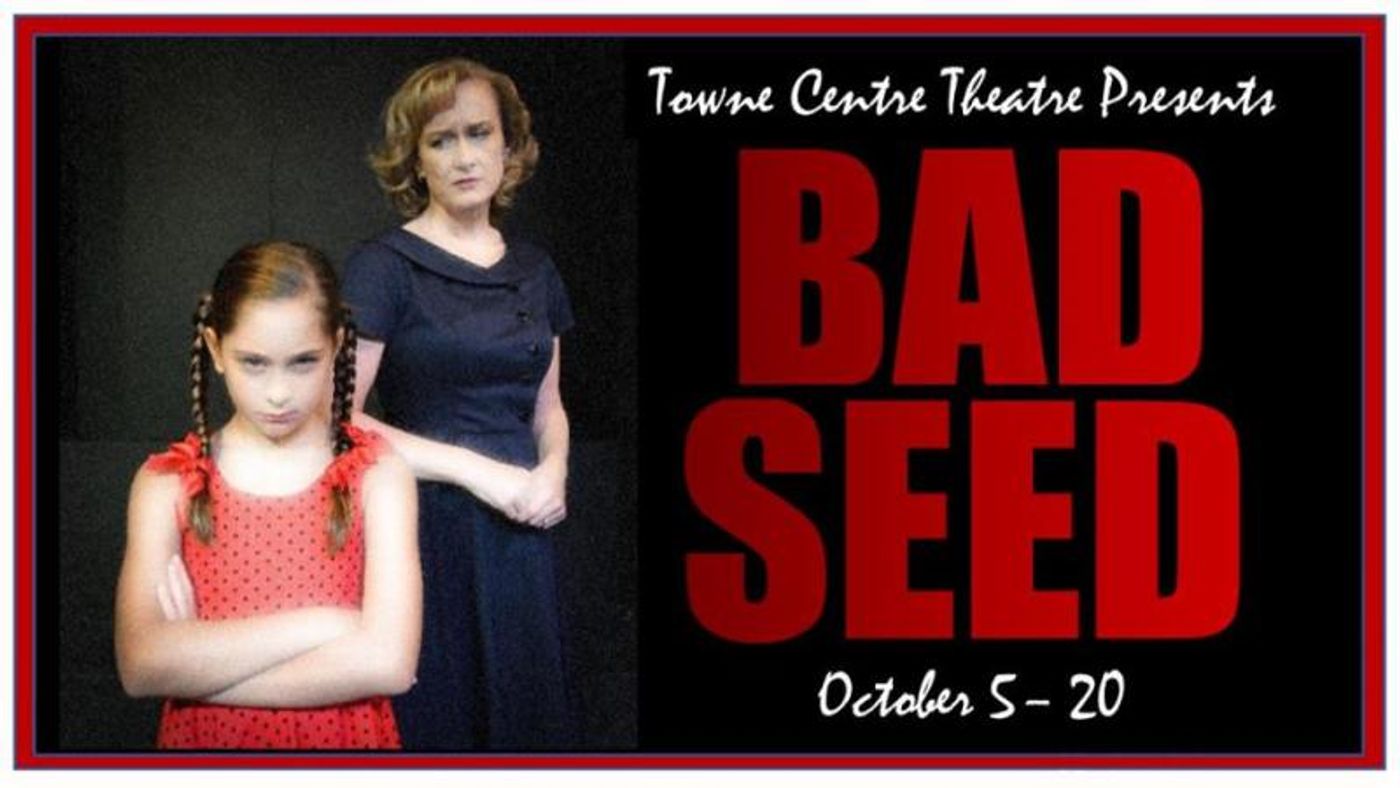Review: Towne Centre Theatre's THE BAD SEED Offers 1950s-Flavored Seasonal Fun

A word to the wise is sufficient: Never turn your back on Rhoda Penmark. No matter how well-behaved, how polite or how sickeningly sweet she may seem, the little girl with the larcenous heart simply cannot be trusted and it is at your own peril that you decide to trust her - the fact that she is a fictional character notwithstanding.
Now onstage at Brentwood's Towne Centre Theatre in a flawed, but effective, production of Maxwell Anderson's The Bad Seed, Rhoda Penmark still sends chills up the spine of the most callous and most informed audience member - testament to the power of Anderson's melodrama in which we must consider if a murderous nature may indeed be a genetic trait, passed down from one generation to the next - no matter how stilted and mannered his dialogue may be.

Thanks to some superb performances, Jim Himelrick's ensemble of actors acquit themselves rather admirably in the two hours-plus of Anderson's sometimes dated, but always entertaining, script. Despite some opening night technical miscues (including a gunshot that comes about five minutes before it's expected) that temporarily mar the proceedings, Himelrick's cast do a fine job of bringing the characters (first glimpsed onstage in 1954, the same year William March's book of the same name was published) to life with enough energy and focus to leave audiences mostly satisfied.
In fact, there are three performances - from Jennifer Bennett as weary mom Christine Penmark, Adele Akin as verbose busybody Monica Breedlove and an astonishing Melissa Williams as the grievously drunk Hortense Daigle - that are just about as good as any we've seen in their roles and they are surrounded by a company of actors intent on bringing the story to life with the right amount of melodramatic zeal blended artfully with 1950s-inspired archness.
Bennett is ideally cast as the prim and proper Christine, whose gradual unraveling as she accepts the notion that her seemingly perfect eight-year-old daughter Rhoda (charmingly played by Mia Saliba, with her braided and bowed pigtails and shiny Mary Jane shoes - although her crinolines seem a touch deflated - the very picture of mid-1950s little girlhood) may indeed be a murderous, contemptible creature with evil coursing through her veins. Bennett delivers Anderson's word salad of mid-century-infused statements and declamations with ease and alacrity, creating a believable character whose misgivings and suspicions are borne out by what the audience learns before she moves into the play's once-shocking, now rather precious, denouement. Nonetheless, Bennett's tortured Christine reacts convincingly at each twist and turn of Anderson's plot, ensuring that the play's overall impact pays off handsomely. Beautifully clad in flattering '50s fashions, with her strawberry blonde hair coiffed into Donna Reed-inspired style, Bennett looks for all the world as if she stepped out of the pages of Vogue, circa 1954, lending an air of authenticity to the proceedings.
 Akin, whom we remember fondly as Hortense Daigle in Street Theatre Company's production of The Bad Seed from some seasons ago in our rearview mirror, gleefully plays the nosey neighbor whose fondness for the macabre and the mysterious figures prominently in the storytelling that plays out onstage. Delightfully overwrought, yet refreshingly candid and self-aware, Akin's Monica supplies some much-needed humor to the proceedings that could devolve into a morass of pot-boiling plot points without her presence to make things more amusing. As with Bennett, Akin is likewise adept when it comes to speaking the language of Anderson's script, which is a challenge for any actor.
Akin, whom we remember fondly as Hortense Daigle in Street Theatre Company's production of The Bad Seed from some seasons ago in our rearview mirror, gleefully plays the nosey neighbor whose fondness for the macabre and the mysterious figures prominently in the storytelling that plays out onstage. Delightfully overwrought, yet refreshingly candid and self-aware, Akin's Monica supplies some much-needed humor to the proceedings that could devolve into a morass of pot-boiling plot points without her presence to make things more amusing. As with Bennett, Akin is likewise adept when it comes to speaking the language of Anderson's script, which is a challenge for any actor.
But it's Williams, as the grieving mother of young Claude Daigle (Rhoda Penmark's classmate, whose winning of the penmanship medal at the Fern Grammar School sets off her latest murderous escapade), who delivers a wonderfully nuanced and altogether astonishing performance. Williams' Hortense is loud, bioisterous and blowsy, effectively becoming the woman who is prone to overdrinking and excessive expressions of her inner turmoil at a time when such actions were considered unladylike and unseemly. However, as Anderson writes her, Hortense is the only character who speaks the unfettered truth, rightly discerning that the picture-perfect Rhoda knows more than she is telling and it is her histrionics that precipitate Christine toward her own ultimate comeuppance. Heretofore best known as a director (and before that, as a stage manager), Williams proves herself an actress capable of taking on the more difficult assignment of exposing her every nerve onstage and she does so to tremendous effect.
In supporting roles in this convoluted, but thoroughly accessible, tale of suspense and intrigue, Dan Linney is terrific as criminologist Reginald Tasker, who feeds the prurient interests of Monica and, more compellingly, Christine, with his tales of murder and mayhem; Geoffrey Rommel is excellent as the world-weary Mr. Daigle; Renaissance Players' veteran actor Carey Thompson is good as Christine's doting father Richard Bravo; and Kathy Crisp is well-cast as Miss Fern, Rhoda and Claude's ineffectual, politically minded teacher. Tony Shannon plays Monica's brother, with Jonathan Vander Molen as Leroy, the doomed handyman of the Breedlove apartment house whose fate is ordained in the play's earliest moments.
 The Bad Seed. By Maxwell Anderson. Directed by Jim Himelrick. Presented by Towne Centre Theatre, 136 Frierson Street, Brentwood. Through October 20. For tickets or for further information, go to www.townecentretheatre.com or call (615) 221-1174. Running time: 2 hours, 25 minutes (with one 15-minute intermission).
The Bad Seed. By Maxwell Anderson. Directed by Jim Himelrick. Presented by Towne Centre Theatre, 136 Frierson Street, Brentwood. Through October 20. For tickets or for further information, go to www.townecentretheatre.com or call (615) 221-1174. Running time: 2 hours, 25 minutes (with one 15-minute intermission).
Reader Reviews
Videos

